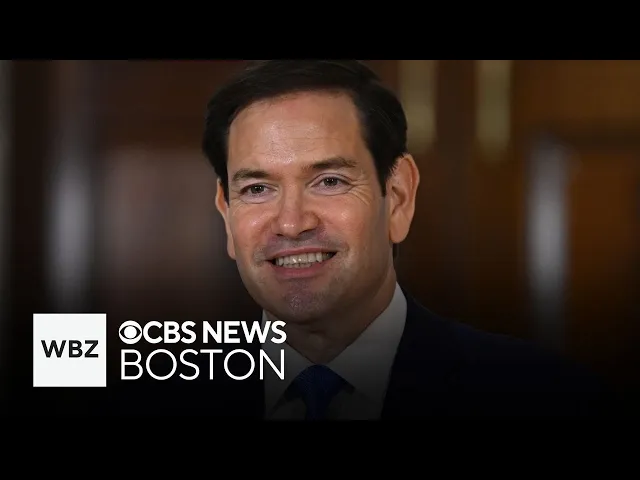Keller: AI-generated Marco Rubio shows dangers of artificial intelligence

AI fakes Marco Rubio, raises serious concerns
In an eye-opening demonstration of artificial intelligence's evolving capabilities, a team recently created a convincing fake video of Senator Marco Rubio that has sent ripples through political and technology circles. The AI-generated clip, showcased in CNN's recent coverage, represents what experts are calling a watershed moment in the development of synthetic media—one that demands our immediate attention as business leaders navigating an increasingly digital landscape.
Key developments worth noting:
-
A team at NewsCorp created an entirely fabricated video of Senator Marco Rubio speaking fluently in Spanish and making policy statements he never actually made, demonstrating how AI can now create highly convincing "deepfakes" that are nearly impossible to distinguish from authentic content.
-
The fake Rubio video was created with readily available technology, not specialized or highly advanced tools, suggesting these capabilities are now accessible to virtually anyone with basic technical skills.
-
The coming election cycle faces unprecedented risks from AI-generated misinformation, with current detection methods lagging behind the technology's rapid advancement.
-
News organizations and tech platforms are scrambling to develop verification systems, but there's no perfect solution on the immediate horizon.
The most alarming insight from this demonstration isn't just that AI can create convincing fakes—it's how quickly this technology has democratized. What once required sophisticated technical expertise and substantial computing resources now exists as accessible tools anyone can use. Bill Keller, former executive editor of The New York Times, pointedly observed that the technology used to create the Rubio fake wasn't cutting-edge or specialized—it was "off-the-shelf" technology available to virtually anyone.
This accessibility represents a fundamental shift in the misinformation landscape. Previously, creating convincing fake content required specialized skills, substantial resources, or both—natural barriers that limited the scale of the problem. Those barriers have effectively disappeared. The democratization of deepfake technology means businesses must now operate in an environment where trust in digital communications can no longer be taken for granted.
For businesses, the implications extend far beyond politics. Consider how your organization might be affected if convincing deepfakes of your CEO announcing false acquisitions, product failures, or controversial policies began circulating online. The market impacts could be immediate and devastating before any correction could be issued. A financial services firm in the UK recently experience
Recent Videos
How To Earn MONEY With Images (No Bullsh*t)
Smart earnings from your image collection In today's digital economy, passive income streams have become increasingly accessible to creators with various skill sets. A recent YouTube video cuts through the hype to explore legitimate ways photographers, designers, and even casual smartphone users can monetize their image collections. The strategies outlined don't rely on unrealistic promises or complicated schemes—instead, they focus on established marketplaces with proven revenue potential for image creators. Key Points Stock photography platforms like Shutterstock, Adobe Stock, and Getty Images remain viable income sources when you understand their specific requirements and optimize your submissions accordingly. Specialized marketplaces focusing...
Oct 3, 2025New SHAPE SHIFTING AI Robot Is Freaking People Out
Liquid robots will change everything In the quiet labs of Carnegie Mellon University, scientists have created something that feels plucked from science fiction—a magnetic slime robot that can transform between liquid and solid states, slipping through tight spaces before reassembling on the other side. This technology, showcased in a recent YouTube video, represents a significant leap beyond traditional robotics into a realm where machines mimic not just animal movements, but their fundamental physical properties. While the internet might be buzzing with dystopian concerns about "shape-shifting terminators," the reality offers far more promising applications that could revolutionize medicine, rescue operations, and...
Oct 3, 2025How To Do Homeless AI Tiktok Trend (Tiktok Homeless AI Tutorial)
AI homeless trend raises ethical concerns In an era where social media trends evolve faster than we can comprehend them, TikTok's "homeless AI" trend has sparked both creative engagement and serious ethical questions. The trend, which involves using AI to transform ordinary photos into images depicting homelessness, has rapidly gained traction across the platform, with creators eagerly jumping on board to showcase their digital transformations. While the technical process is relatively straightforward, the implications of digitally "becoming homeless" for entertainment deserve careful consideration. The video tutorial provides a step-by-step guide on creating these AI-generated images, explaining how users can transform...
